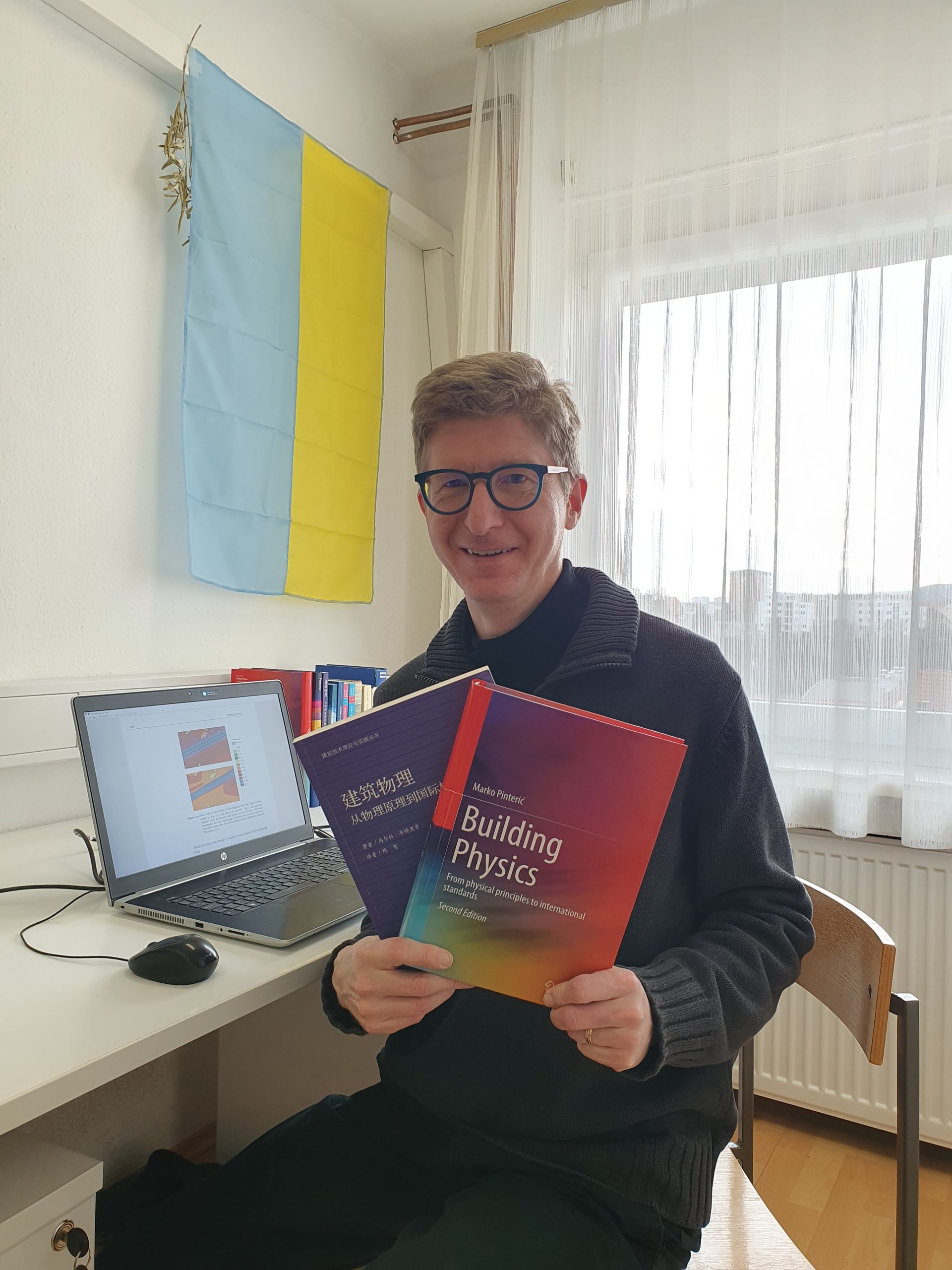We at Maidan Monitoring Information Center often hear a question from Western friends “what could we do to help Ukrainians”. We know this question is common nowadays all over the world.
No doubt resources for conducting the war are the major necessity for Ukraine now i.e. modern weapons, ammunition, financial support of the Ukrainian state. These resources should address immediate needs and are mostly provided via governments.
There is however a support that Westerners, and Western intellectuals in particular, could provide themselves directly. The support that will work long-term for the Ukrainian cause.
A legal instrument
In May of 2020, we published an interview with Marko Pinteric, a professor of physics from Slovenia. He told about his personal experience, and the story he presented is an example to be followed. Dr Pinteric wrote a book, “Building physics – From physical principles to international standards”. His initial condition in talks with a publisher was that copyright to future Ukrainian and Russian translations should remain with him, rather than passed to the publisher as it normally happens. This was a legal instrument for the idea of Dr Pinteric, that a permission should never be given for publishing in Russian, while a license to publish in Ukrainian would be granted royalty-free.
We are urging to read the full text, quoting here only the main aspects of the idea:
… [in Ukraine] books of Russian authors and in Russian language have long dominated the market. For obvious reasons a Russian book has competitive advantages in Ukraine over a book published in Ukrainian: majority of Ukrainians are fluent Russian speakers, and the Russian book has been already prepared and published in Russia, while the Ukrainian edition is to be separately prepared in order to be offered to a Ukrainian reader, including preparing Ukrainian translation, buying a license from the copyright owner and carrying out various other expenses – all this in order to be offered to a market much smaller than the market for a Russian-language book.
MP: I wanted to prevent translation into Russian and yet allow translation in Ukrainian giving up my royalties. I thought that having a good book translated only in Ukrainian and for a favourable price would increase the prestige of Ukrainian language. I know that Ukrainian language struggles under the pressure of Russian language and I wanted to make this my little contribution to Ukrainian cause.
M-I: But it is discriminatory, isn’t it?
MP: Well,… I guess in some sense it is, but then it is a positive discrimination… The concept when you give the weaker party an advantage, because otherwise it has no chance against the stronger party… who, by the way, has gained their strength as a result of really brutal discrimination. And, why wouldn’t, for a change, Russians be forced to use an Ukrainian language book?
The story did have a successful progress. A contract for publishing the book in Ukrainian was eventually signed with Dr Pinteric by a leading Ukrainian publisher. The book would hopefully reach Ukrainian civil engineers and builders soon, contributing to rebuilding of Ukraine.
An idea for publishers
Western authors can incentivize Ukrainian publishers to publish books they authored, in Ukrainian, by both decreasing publishing costs due to a royalty-free license, and guaranteeing no competition from Russian versions. As a result, books will be published in Ukrainian that otherwise would never be published.
The help will be of great value for books of all genres, but most importantly in the topics where publishers’ interest is insufficient to trigger publishing due to relatively low sales and relatively high competition by Russian publishers. For such books the suggested contribution by the author can appear decisive for turning the balance in favor of publishing. This definitely includes scientific and educational books for a broader audience, published in low numbers in Ukraine due to the reasons explained.
Moral challenges become more and more apparent
There was no large-scale war in Europe when Dr Pinteric pioneered his idea, and back then many found it exotic. Today the situation is different. It is much more evident now what is the role of the strong modern Ukraine for the security of Europe and the world, and the role of the Ukrainian identity, and contribution of the Ukrainian language as a key element of this identity. At the same time, moral challenges become more and more apparent, of contributing to Russian publishers’ profits (who will normally publish Western authors along with typical RuskiMir literature, putting the books alongside on shelves of bookstores), and as a result to tax revenues of the Kremlin.
In this situation, we are inviting Western authors to make public pledges to follow the example of Dr Pinteric for their new books in negotiations with publishers, and we are urging Western publishers to cooperate proactively, offering respective licensing options to their authors willingly and re-negotiating agreements already in place. No doubt this will provide valuable support for the Ukrainian cause.




